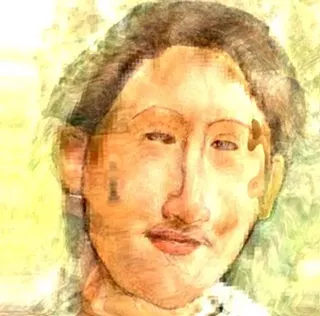Dan Goggin's Nunsense has become quite a franchise, with enough sequels to keep a Florida dinner theater busy for the better part of a year. Tucson's Invisible Theatre produced its own version of Nunsense in 1992, and now the company has skipped over several spinoffs to present something like the fifth item in the series, Meshuggah-Nuns.
This time, we find the four nuns on a "faith of all nations" cruise. Unfortunately, during Jewish week, the cast of the week's entertainment, Fiddler on the Roof, has become too seasick to perform. The only one who has gotten his sea legs is the star, one Howard Liszt. So, in the interest of interfaith solidarity, the sisters volunteer to join Liszt in a new variety show.
It's tough to come up with a theme, though. Luckily, Jews and Catholics do have one thing in common: guilt.
But the really guilty party here is the show's creator, Goggin, who has been flogging a dead concept for more than 20 years. If it weren't for the lively work of the Invisible Theatre ensemble, this would be one lollipop of a ship it would be best to abandon.
Goggin thinks he can still get laughs merely with the concept of nuns doing song-and-dance numbers. But we already had the folky Singing Nun a few decades ago, not to mention the Flying Nun. You can go to a toy store and buy a boxing-nun action figure, or rent movies in which nuns are impersonated by Whoopi Goldberg and even Robert De Niro and Sean Penn. There's no way the valiantly inoffensive Nunsense franchise can top any of that, short of a visit from Cheech and Chong's Sister Mary Elephant, or, at least in this show, an infusion of old-fashioned Borsht Belt zing from the likes of Mel Brooks.
The only really funny material is the wealth of campy public-domain Catholic and Jewish jokes Goggin has deposited in the script, and most of that we've encountered many times before. Still, some of Goggin's own touches do come off well during the performance, no matter how contrived they seem in retrospect. You can't help laughing, for example, when Sister Mary Regina is hawking ecumenical items on the ship's duty-free cart, including a selection of "Cheeses of Nazareth."
But even Goggin seems not to trust his material anymore. Howard Liszt comments way too often on how side-splittingly funny the jokes are, just in case the audience doesn't realize they should be having a good time. And in fact, the audience on opening night did laugh quite a lot--at the old one-liners that fell from the tree long ago, just waiting for Goggin to harvest them, and at the antics of the cast.
Goggin's efforts to pipe a bit of Jewish culture aboard never amounts to much. Indeed, we're a few Jews short of a shtetl. As Liszt, Jack Neubeck seems about as Jewish as Van Johnson, whom he somewhat resembles. He sings well and has a warm presence onstage, but this character really needs to be more ethnic.
Goggin's familiarity with Jewish culture seems limited to a quick perusal of The Joys of Yiddish. Take the "Potchky Polka"--please. It's supposedly inspired by klezmer music, but except for a few initial licks by reed player Carla Brownlee, it sounds more like something you'd hear at a Milwaukee Elks club.
Music is one of the show's big weaknesses. The first song sequence lasts way too long; it has neither the musical nor lyrical strength to support the big production number it wants to be.
Then there are the half-hearted parodies. Goggin, inspired by Fiddler's opening number, "Tradition," writes a counterpart called "Contrition." And "If I Were a Rich Man" inspires something with the title "If I Were a Catholic" (sung by the resident Jew, of course). But Goggin doesn't have the guts to appropriate the original music--Jerry Bock couldn't well sue, because parody is fair use--and he doesn't have the imagination to come up with a tune nearly as catchy. (The vapid number employing most of the song titles--but not melodies--from Fiddler is best passed over in silence. So stop moving your lips as you read this.)
One highlight in the score is "Three Shayna Maidels," sung in the style of another group of sisters--the Andrews Sisters. But the success owes more to the performers than the material.
Then there's the script, thin as a nun's lips. At one point, Goggin sets up a subplot--well, under the circumstances, it could almost count as a plot--in which Sister Mary Hubert realizes she'd be able to take control of the convent if Mother Superior Mary Regina were to hit it big as an entertainer and leave the order. But this idea evaporates as soon as it drips onto the stage.
Still, there's the cast to consider. Liz McMahon's wide eyes and broad if bewildered smile bespeak the dotty joy and innocence of Sister Mary Amnesia. Gail Fitzhugh has the prim but inwardly impish Sister Mary Regina down pat.
Valerie Baugh's Sister Robert Anne, rescued from the streets of Brooklyn, has an engagingly tough New York enthusiasm, but her former gang-member character might benefit from an extra dollop of Bronx cheer.
More intimidating than a ruler across the knuckles are the furrowed brow and piercing stare of Regina Wills as drill sergeant-nun Sister Mary Hubert. In the end, Wills sends the audience out with a rollicking performance of the gospel number "Rock the Boat," but what is this doing in Meshuggah-Nuns? It belongs in some future show where the nuns meet the Blues Brothers.
The band, in addition to reed player Brownlee, consists of keyboardist Lisa Otey and percussionist Dave Rodenkirch, and its deft pre-show sequence of jazz versions of Fiddler tunes provides the evening's only musical substance.
Aside from the Invisible Theatre performances, Dan Goggin's trot around the block with Meshuggah-Nuns is merely the story of a goy and his dog.










